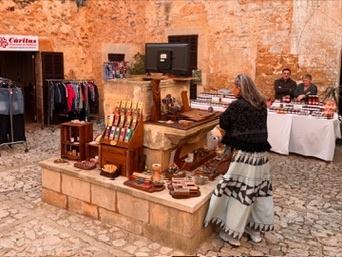How do local ingredients influence the flavors of Mallorcan cuisine?
Similar Topics
mallorcan cuisine
local ingredients
fresh vegetables
olive oil
mediterranean seafood
local herbs
traditional sausages
citrus fruits
Mallorcan cuisine is deeply shaped by the island’s local ingredients, which contribute significantly to its distinctive and authentic flavors. The fertile land of Mallorca produces an abundance of fresh vegetables like tomatoes, artichokes, and peppers, which are frequently used in traditional dishes and lend a vibrant freshness to the food. Olive oil, a product of the island’s extensive olive groves, is a fundamental component, adding richness and depth to both cooked and raw preparations. This reliance on local produce ensures that the flavors are both bright and robust, reflecting the Mediterranean climate and soil that nurture them.
Seafood also plays a crucial role, as Mallorca is surrounded by the Mediterranean Sea. Fresh fish, octopus, and shellfish are staples in many recipes, delivering a clean, briny taste that complements the island’s earthy ingredients. The combination of land and sea offerings creates a balanced palette marked by the harmonious contrast of vegetal sweetness and saline notes. Additionally, local herbs like rosemary, thyme, and fennel, which grow wild on the island, are often used to season dishes, infusing them with aromatic complexity that is quintessentially Mallorcan.
The island’s traditional sausages and cured meats, made from pork raised on local farms, add another layer of flavor that is savory and hearty. These meats are typically seasoned with local spices and sometimes smoked using indigenous woods, enhancing their taste and aroma. Mallorcan cuisine’s connection to its natural environment is further exemplified in its use of almonds and citrus fruits, both of which thrive on the island and contribute subtle nutty and tangy undertones to desserts and savory dishes alike. Together, these ingredients create a cuisine that is vibrant, earthy, and deeply rooted in the island’s unique ecosystem, offering visitors a true taste of Mallorca’s landscape and cultural heritage.
Seafood also plays a crucial role, as Mallorca is surrounded by the Mediterranean Sea. Fresh fish, octopus, and shellfish are staples in many recipes, delivering a clean, briny taste that complements the island’s earthy ingredients. The combination of land and sea offerings creates a balanced palette marked by the harmonious contrast of vegetal sweetness and saline notes. Additionally, local herbs like rosemary, thyme, and fennel, which grow wild on the island, are often used to season dishes, infusing them with aromatic complexity that is quintessentially Mallorcan.
The island’s traditional sausages and cured meats, made from pork raised on local farms, add another layer of flavor that is savory and hearty. These meats are typically seasoned with local spices and sometimes smoked using indigenous woods, enhancing their taste and aroma. Mallorcan cuisine’s connection to its natural environment is further exemplified in its use of almonds and citrus fruits, both of which thrive on the island and contribute subtle nutty and tangy undertones to desserts and savory dishes alike. Together, these ingredients create a cuisine that is vibrant, earthy, and deeply rooted in the island’s unique ecosystem, offering visitors a true taste of Mallorca’s landscape and cultural heritage.
🧩 Related Questions
Related Question
What strategies do almond farmers in Mallorca use to manage price fluctuations during the harvest season?
Related Question
How do the country-named streets in Palma reflect the island’s historical trade routes?
Related Question
What benefits do healthy Neptune grass meadows provide for marine biodiversity around Mallorca?
